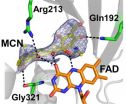(Press-News.org) WASHINGTON — On average, Americans die sooner and experience higher rates of disease and injury than people in other high-income countries, says a new report from the National Research Council and Institute of Medicine. The report finds that this health disadvantage exists at all ages from birth to age 75 and that even advantaged Americans -- those who have health insurance, college educations, higher incomes, and healthy behaviors -- appear to be sicker than their peers in other rich nations.
"We were struck by the gravity of these findings," said Steven H. Woolf, professor of family medicine at Virginia Commonwealth University in Richmond and chair of the panel that wrote the report. "Americans are dying and suffering at rates that we know are unnecessary because people in other high-income countries are living longer lives and enjoying better health. What concerns our panel is why, for decades, we have been slipping behind."
The report is the first comprehensive look at multiple diseases, injuries, and behaviors across the entire life span, comparing the United States with 16 peer nations -- affluent democracies that include Australia, Canada, Japan, and many western European countries. Among these countries, the U.S. is at or near the bottom in nine key areas of health: infant mortality and low birth weight; injuries and homicides; teenage pregnancies and sexually transmitted infections; prevalence of HIV and AIDS; drug-related deaths; obesity and diabetes; heart disease; chronic lung disease; and disability.
Many of these health conditions disproportionately affect children and adolescents, the report says. For decades, the U.S. has had the highest infant mortality rate of any high-income country, and it also ranks poorly on premature birth and the proportion of children who live to age 5. U.S. adolescents have higher rates of death from traffic accidents and homicide, the highest rates of teenage pregnancy, and are more likely to acquire sexually transmitted infections. Nearly two-thirds of the difference in life expectancy between males in the U.S. and these other countries can be attributed to deaths before age 50.
These findings build on a 2011 Research Council report that documented a growing mortality gap among Americans over age 50. "It's a tragedy. Our report found that an equally large, if not larger, disadvantage exists among younger Americans," Woolf said. "I don't think most parents know that, on average, infants, children, and adolescents in the U.S. die younger and have greater rates of illness and injury than youth in other countries."
The panel did find that the U.S. outperforms its peers in some areas of health and health-related behavior. People in the U.S. over age 75 live longer, and Americans have lower death rates from stroke and cancer, better control of blood pressure and cholesterol levels, and lower rates of smoking.
Root Causes
This health disadvantage exists even though the U.S. spends more per capita on health care than any other nation. Although documented flaws in the health care system may contribute to poorer health, the panel concluded that many factors are responsible for the nation's health disadvantage.
The report examines the role of underlying social values and public policies in understanding why the U.S. is outranked by other nations on both health outcomes and the conditions that affect health. For example, Americans are more likely to engage in certain unhealthy behaviors, from heavy caloric intake to behaviors that increase the risk of fatal injuries, the report says. The U.S. has relatively high rates of poverty and income inequality and is lagging behind other countries in the education of young people.
However, the panel's research suggests that the U.S. health disadvantage is not solely a reflection of the serious health disadvantages that are concentrated in the U.S. among poor or uninsured people or ethnic and racial minorities. Americans still fare worse than people in other countries even when the analysis is limited to non-Hispanic whites and people with relatively high incomes and health insurance, nonsmokers, or people who are not obese.
The report recommends an intensified effort to pursue established national health objectives. It calls for a comprehensive outreach campaign to alert the American public about the U.S. health disadvantage and to stimulate a national discussion about its implications. In parallel, it recommends data collection and research to better understand the factors responsible for the U.S. disadvantage and potential solutions, including lessons that can be learned from other countries.
"Research is important, but we should not wait for more data before taking action, because we already know what to do. If we fail to act, the disadvantage will continue to worsen and our children will face shorter lives and greater rates of illness than their peers in other rich nations," Woolf said.
###
The study was sponsored by the National Institutes of Health and U.S. Department of Health and Human Services. The National Academy of Sciences, National Academy of Engineering, Institute of Medicine, and National Research Council make up the National Academies. They are private, independent nonprofit institutions that provide science, technology, and health policy advice under a congressional charter granted to NAS in 1863. The Research Council is the principal operating agency of the National Academy of Sciences and the National Academy of Engineering. For more information, visit http://national-academies.org. A committee roster follows.
Contacts:
Lauren Rugani, Media Relations Officer
Christine Stencel, Senior Media Relations Officer
Shaquanna Shields, Media Relations Assistant
Office of News and Public Information
202-334-2138; e-mail news@nas.edu
Additional resources:
Report in Brief
Project Website
Pre-publication copies of U.S. Health in International Perspective: Shorter Lives, Poorer Health are available from the National Academies Press on the Internet at http://www.nap.edu or by calling tel. 202-334-3313 or 1-800-624-6242. Reporters may obtain a copy from the Office of News and Public Information (contacts listed above).
NATIONAL RESEARCH COUNCIL
Division of Behavioral and Social Sciences and Education
and
INSTITUTE OF MEDICINE
Panel on Understanding Cross-National Health Differences Among High-Income Countries
Steven H. Woolf 1(chair)
Director
Center on Human Needs, and
Professor of Family Medicine
Virginia Commonwealth University
Richmond
Paula A. Braveman1
Professor of Family and Community Medicine, and
Director
Center on Social Disparities in Health
University of California
San Francisco
Kaare Christensen
Professor of Epidemiology
University of Southern Denmark, and
Senior Research Scientist
Department of Public Policy Studies
Duke University
Durham, N.C.
Eileen M. Crimmins
AARP Chair of Gerontology
University of Southern California
Los Angeles
Ana V. Diez Roux1
Professor and Chair of Epidemiology, and
Director
Center for Social Epidemiology and Population Health
University of Michigan
Ann Arbor
Dean T. Jamison1
Professor of Global Health
University of Washington
Seattle
Johan P. Mackenbach
Professor of Public Health, and
Chair
Department of Public Health
Erasmus University Medical Center
Rotterdam, Netherlands
David V. McQueen
Global Consultant, and
Adjunct Professor
Rollins School of Public Health
Emory University
Atlanta
Alberto Palloni
Samuel H. Preston Professor of Sociology and Population Studies
University of Wisconsin
Madison
Samuel H. Preston1,2
Professor of Demography and Sociology
University of Pennsylvania
Philadelphia
STAFF
Lauden Aron
Study Director
1 Member, Institute of Medicine
2 Member, National Academy of Sciences
US health disadvantage spans age and socioeconomic groups
2013-01-09
ELSE PRESS RELEASES FROM THIS DATE:
Scientists use marine robots to detect endangered whales
2013-01-09
Two robots equipped with instruments designed to "listen" for the calls of baleen whales detected nine endangered North Atlantic right whales in the Gulf of Maine last month. The robots reported the detections to shore-based researchers within hours of hearing the whales (i.e., in real time), demonstrating a new and powerful tool for managing interactions between whales and human activities.
The team of researchers, led by Woods Hole Oceanographic Institution (WHOI) scientists Mark Baumgartner and Dave Fratantoni, reported their sightings to NOAA, the federal agency responsible ...
Drug resistance: 'Baby steps' can pay off big
2013-01-09
HOUSTON -- (Jan. 9, 2013) -- Rice University scientists have found that mutations of small effect can turn out to be game changers in the bacterial fight against antibiotic drugs.
The discovery came during an exhaustive, three-year effort to create a mathematical model that could accurately predict how specific mutations allow bacteria like E. coli to adapt to antibiotics like minocycline. The findings are detailed in a Dec. 10 study in the Proceedings of the National Academy of Sciences.
"As biologists, we tend to focus on big effects that result from big changes, ...
Hold the diet soda? Sweetened drinks linked to depression, coffee tied to lower risk
2013-01-09
SAN DIEGO – New research suggests that drinking sweetened beverages, especially diet drinks, is associated with an increased risk of depression in adults while drinking coffee was tied to a slightly lower risk. The study was released today and will be presented at the American Academy of Neurology's 65th Annual Meeting in San Diego, March 16 to 23, 2013.
"Sweetened beverages, coffee and tea are commonly consumed worldwide and have important physical—and may have important mental—health consequences," said study author Honglei Chen, MD, PhD, with the National Institutes ...
Study shows cognitive benefit of lifelong bilingualism
2013-01-09
Washington, DC — Seniors who have spoken two languages since childhood are faster than single-language speakers at switching from one task to another, according to a study published in the January 9 issue of The Journal of Neuroscience. Compared to their monolingual peers, lifelong bilinguals also show different patterns of brain activity when making the switch, the study found.
The findings suggest the value of regular stimulating mental activity across the lifetime. As people age, cognitive flexibility — the ability to adapt to unfamiliar or unexpected circumstances ...
Nobel laureate James Watson publishes novel hypothesis on curing late-stage cancers
2013-01-09
Cold Spring Harbor, NY – "Although mortality from many cancers has been steadily falling, particularly those of the blood [i.e., leukemias], the more important statistic may be that so many epithelial cancers (carcinomas) and effectively all mesenchymal cancers (sarcomas) remain largely incurable."
With these words as preface, Nobel laureate James D. Watson, Ph.D., in a newly published paper that he regards "among my most important work since the double helix," sets forth a novel hypothesis regarding the role of oxidants and antioxidants in cancers that are currently ...
Vitamin D supplementation does not reduce knee pain, cartilage loss in patients with osteoarthritis
2013-01-09
CHICAGO – In a two year randomized trial, patients with symptomatic knee osteoarthritis who received vitamin D supplementation did not have a significant difference in knee pain or cartilage volume loss compared to patients who received placebo, according to a study appearing in the January 9 issue of JAMA.
"Knee osteoarthritis (OA) is a common age-related musculoskeletal disorder that has significant functional impact and has considerable societal costs through work loss, early retirement, and arthroplasty. Despite its impact, there are no medical treatments established ...
Study documents failure rate of antibiotic treatment for gonorrhea
2013-01-09
CHICAGO – In an examination of the effectiveness of cefixime, the only oral cephalosporin antimicrobial recommended for treatment of Neisseria gonorrhoeae (gonorrhea) infections, researchers found a clinical treatment failure rate of nearly 7 percent for patients treated at a clinic in Toronto, according to a preliminary study published in the January 9 issue of JAMA.
"Because of Neisseria gonorrhoeae resistance to all prior first-line antimicrobial agents, cephalosporin [antibiotic] therapy with adjuvant azithromycin or doxycycline is recommended for treatment of gonorrhea," ...
Post-operative intravenous acetaminophen may help reduce use of morphine in infants
2013-01-09
CHICAGO – Among infants undergoing major surgery, postoperative use of intermittent intravenous paracetamol (acetaminophen) for the management of pain resulted in a lower cumulative morphine dose over 48 hours, according to a study appearing in the January 9 issue of JAMA.
Opioid therapy for the treatment of pain is associated with adverse effects. Researchers are seeking alternative analgesic regimens in neonates and infants, according to background information in the article. Paracetamol has been proposed as an alternative, with one study showing promise.
Ilse Ceelie, ...
Lung cancer patients live longer if they use beta-blockers while receiving radiotherapy
2013-01-09
Patients with non-small-cell lung cancer survive longer if they are taking beta-blockers while receiving radiotherapy, according to a study of 722 patients published in the cancer journal Annals of Oncology [1] today (Wednesday).
Researchers at the University of Texas MD Anderson Cancer Center (Houston, USA) reviewed the progress and outcomes of patients who had received radiotherapy as their main or first line of treatment for cancer (known as "definitive radiotherapy" i.e. radiotherapy that is delivered at doses of 60 Gy or more, with the intention of curing the disease). ...
Cheating slime mold gets the upper hand
2013-01-09
A 'cheater' mutation (chtB) in Dictyostelium discoideum, a free living slime mould able to co-operate as social organism when food is scarce, allows the cheater strain to exploit its social partner, finds a new study published in BioMed Central's open access journal BMC Evolutionary Biology. The mutation ensures that when mixed with 'normal' Dictyostelium more than the fair share of cheaters become spores, dispersing to a new environment, and avoiding dying as stalk cells.
Dictyostelium have an unusual life style. They generally live as individual amoeboid cells, eating ...


